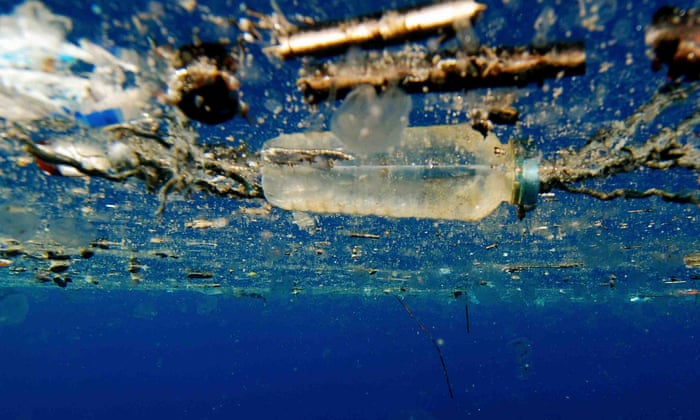The European parliament has overwhelmingly backed a wide-ranging ban on single-use plastics in an effort to tackle pollution in seas, fields and waterways.
Under the proposed directive, items such as plastic straws, cotton swabs, disposable plastic plates and cutlery would be banned by 2021, and 90% of plastic bottle recycled by 2025.
Described by the European commission as a clampdown on “the top 10 plastic products that most often end up in the ocean”, the proposed legislation passed 571 votes to 53.
Labour MEPs said the EU plan must be respected by the UK after Brexit. Seb Dance, the party’s environment spokesman in the European parliament, said: “These new measures will slash the use of single-use plastics in the EU. With more than 700,000 plastic bottles littered in the UK every day, it would be negligent if the UK does not maintain these new targets if we leave the EU.
“Unless the UK mirrors EU action on plastics after Brexit, the Tories risk turning the UK into a dumping ground for cheap, non-recyclable plastics.”
Much plastic waste is washed into the ocean, where it may take centuries to fully degrade. Lightweight single-use items are among the most problematic of plastics because they can easily travel long distances, absorbing toxins along the way that damage marine flora and fauna.
The proposed legislation catapults the EU into a leadership position in tackling the growing plastic pollution crisis.
EU states still have to back the directive before it becomes law, but commission sources said they were optimistic that action would continue to move quickly.
“We hope to have a vote in the European council in November,” one told the Guardian. “If all goes well, we could have it in law by the end of the year.”
The UK is yet to bring forward primary legislation addressing the plastics issue despite publication of more than 20 consultations on the matter since the general election last year.

In February, the environment secretary, Michael Gove, became embroiled in a Twitter spat with the European commission’s first vice-president, Frans Timmerans, in which he denied that the EU was one step ahead of the UK in tackling the problem. Similar measures regarding single-use plastics are expected to be announced by the chancellor, Philip Hammond, the budget on Monday.
After Wednesday’s European parliamentary vote, the environment commissioner, Karmenu Vella, said: “Today we are one step closer to eliminating the most problematic single use plastic products in Europe. It sends a clear signal that Europe is ready to take decisive, coordinated action to curb plastic waste and to lead international efforts to make our oceans plastic-free.”
The Guardian 24 Oct 2018



